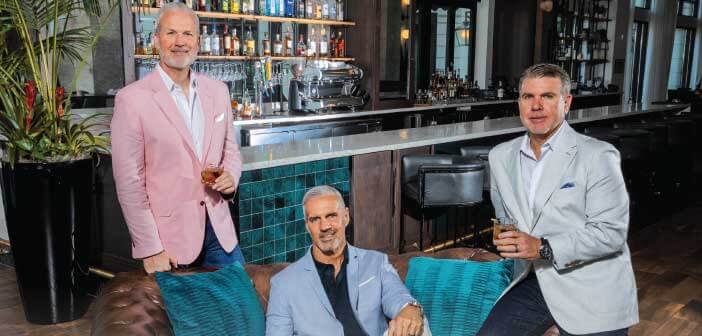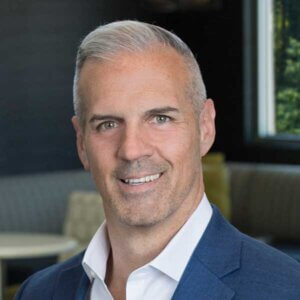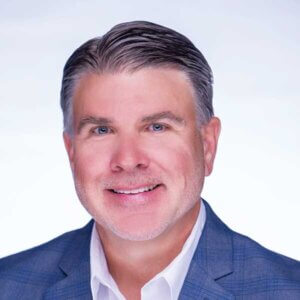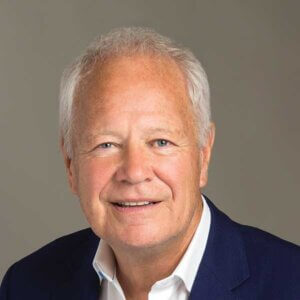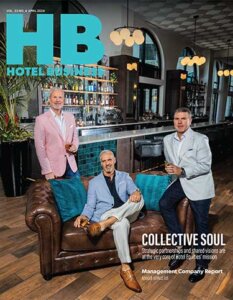The equation 1+1=3 seems rather odd, but when it is used in a different context, it represents synergy. For Hotel Equities (HE), the equation signifies what happens when companies align to make each other stronger. Since 2020, deep in the throes of the pandemic, the Alpharetta, GA-based owner/operator/developer has been making 1+1 =3 through strategic partnerships.
“We were on our heels in March of 2020, like most of the groups in our space, and put ourselves in the boardroom for a number of days to try to figure out how we were going to punch our way out of the pandemic,” said Brad Rahinsky, president/CEO, HE. “What we figured was that there were a number of groups that we had a relationship with that were probably having identical conversations.”
After finding out that there were companies doing the same thing, the strategic partnership concept began to take shape.
Rahinsky recalled, “We started to ask the question, ‘What if we were to create something that would allow us to immediately scale our platforms, bolt our systems onto one another and create a collective—an alliance, if you will—that would allow us to retain our intimacy, retain these various organizations’ cultures, where the principals stay the principals and the companies stay the companies?”
The Witness Group, an owner, operator and developer with hotels in Indiana and Ohio, was the first strategic partner in 2020. HE COO Bryan DeCort said at the time, “We share a radical focus on the preservation of our healthy culture, which begins with our passion for people and our relentless competitiveness.” The company has since rebranded as Witness Investment and is focusing on the owner/developer side of the business.
Culture has always been top of mind for Hotel Equities, and it is the foundation by which these strategic partnerships are built.
“The culture piece is absolutely mission critical.” said Rahinsky. “It is always the long pole in the tent in our discussions. We want to make sure that they have similar priorities and visions in terms of servant leadership and in terms of getting better and allowing the bigger to come from the better.”
There are several differences between a strategic partnership and a merger or acquisition, but first and foremost is the retention of the strategic partner’s employees.
“In most cases, everybody stays,” said Joe Reardon, chief development officer, HE. “In some cases, there are elevation opportunities, and it’s really refreshing to see people taking on new roles within the collective organization.”
The incoming employees learn first-hand from the HE brass what the strategic partnership means to them.
“Joe, Bryan and myself typically go to meet with leadership—not just senior leadership, but also property-level leadership—of the new partner in a town-hall style meeting,” said Rahinsky. “We talk about all the things that this partnership is and what it creates, and equally important, all the things that it’s not in terms of a takeover. What’s been fascinating is we will see a significant shift in body language and energy in the room from the first 10-20 minutes that we start to the last 40-60 minutes, where you see real energy starting to happen and great open-ended questions about opportunities and what it might mean for them and their families.”
The CEO explained that the team members of the partner company essentially become associates of Hotel Equities.
“That’s part of the onboarding,” he said. “There is a very intentional focus on making sure that they’re aware of all the things the partnership provides them, whether it be from a human-resources standpoint, a 401K standpoint, a vacation/PTO standpoint and all the value-adds the partnership creates.”
Partnership growth
Following that first strategic partnership, HE found more like-minded companies to team up with and become “affiliates of Hotel Equities.”
Coakley & Williams Hotel Management provided a Mid-Atlantic and Washington, DC, presence. The Hotel Group (THG) added Northwestern properties to the overall portfolio. (See sidebar on pg. 19 for more on THG.) Greenwood Hospitality brought a portfolio of full-service, lifestyle and independent hotels, as well as added food and beverage expertise. National Hospitality Services (NHS) is based in the Midwest with a portfolio of more than 40 assets, and Maximum Hospitality added “a diverse portfolio, healthy pipeline of hotels in development and massive opportunity for growth,” according to Reardon.
Then, in January, HE forged a partnership with private equity firm PPC Enterprises (PPC) to bring in capital to invest in future mergers & acquisitions (M&A), strategic alliances, joint-venture opportunities and acquisitions.
“Roughly six years ago, we partnered with a family office based out of Scottsdale, AZ, that was going to come in and effectively become our capital arm and allow us to go out and acquire and develop in our space,” said Rahinsky. “Over the next year or so, we were very effective in taking their capital, acquiring and also developing projects, mostly in the Southeast and Southwest.”
That company was Virtua Partners, and as HE went from an asset-heavy approach with acquisitions and development to more an asset-light approach with the partnership model, “they expressed interest in starting to look for a replacement for their capital,” noted Rahinsky.
The search for a new capital arm took about 15 months, he said, with 12 groups expressing interest. Eventually, the number was whittled down to two, until early this year when PPC—which stands for Public Pension Capital—was named a strategic partner.
“They manage a number of pension funds throughout the country, and they do that brilliantly by looking at acquiring and enhancing operating companies, such as ours, by supplying them with capital and providing additional resources, particularly around the finance and accounting side,” said Rahinsky.
Reardon noted that PPC allows the company to invest in business intelligence tools and other technology, while also “allowing us to play in a bit of a different sandbox. If an ownership group or a larger hotel group is looking for someone to come in with a larger sliver equity or some key money to help them get something across the line, we can do that. I think you will see us having that ability now to play in a different size of hotel, resort or portfolio. We’re in a number of conversations with ownership groups today because of that.”
Southern exposure
With 252 hotels in the U.S. and 40 in Canada, HE is setting its sights on expansion in a new region: the Caribbean and Latin America (CALA). It was the company’s success in Canada that sparked the idea of growing further south.
“Almost four years ago, we were fortunate enough to receive a call from two of the top brands that were expanding in Canada, and they were looking to take a couple of strong North American operators with them,” said Reardon. “After doing our due diligence for about eight or nine months, we determined we need to have a full support team operating in-market in Canada.”
He added, “So we started saying, ‘Where else could we serve ownership groups and help our brand partners out,’ and we had some additional conversations where we were asked if we would do business down in the Caribbean and Latin America. We started studying the region, looking at it from an HR perspective, and we found that we have a lot of folks on our team that have operated in those markets in the past. We are now deploying resources for a regional office that’ll be based out of Coral Gables. From there, we’ll be setting up an operating platform in CALA. We’re in conversation with a couple of different groups that have an operating platform there, so we couldn’t be more excited about that.”
Rahinsky said the CALA office will most likely be located in either Mexico or Central America “so that we’re running those markets with locals who understand the dynamics,” adding, “We’ll take the strategic alliance approach, but also some traditional M&A with groups that are embedded in the region and have a longstanding history of being successful with owning and operating hotels down there.”

Hotel Equities is using its Canada growth, which includes the Moxy Halifax Downtown, as a blueprint for expansion in the CALA region.
While HE has yet to determine which CALA markets to focus on, the CEO offered that, in large part, “the CALA region is underserved with professional, best-in-class management. We think we bring a different lens to the region in terms of resources, business intelligence and experience within the space to optimize the owner/developer’s opportunities.”
Rahinsky sees the CALA portfolio taking shape “over the next 12-24 months.”
To accelerate growth in the region, HE has formed a strategic partnership with Trust Hospitality, which relaunched its management business in the fourth quarter of 2023, roughly two years after Highgate assumed management of its portfolio of 22 hotels and resorts in the U.S., the Caribbean and Latin America.
“Trust Hospitality really was a best-in-class and industry-leading company in the CALA region for a number of years,” said Rahinsky. “Founders Richard Millard and Michael Register and their team really were peerless in understanding the opportunities, maximizing and optimizing the shareholders returns and doing it in a way that created a unique user experience that guaranteed, to a large degree, that their hotels would outperform day in and day out.”
He added, “We’ve been in discussions with them about creating something both powerful and unique that would allow them to get back into the CALA region, using our resources, our platform and our infrastructure of nearly 10,000 associates, and accelerate the trajectory back into CALA in a way that only Trust could do.”
The Trust team is already building a new portfolio of hotels with Hotel Equities as the operating engine. There are already 16 hotels in the pipeline, and Reardon noted, “The owners are excited and engaging. It becomes an extension and a quick pipeline into the region with folks that we trust and admire what they’ve built up over the many years.”
While the strategic partnership has enabled HE’s footprint to get bigger, more importantly it has made the company better—and the executives said more are coming.
“This model is just something that’s so different from what’s going on in our industry right now,” said Reardon. “It’s certainly not an acquisition because if the principals don’t stay in play, it’s a ‘no deal’ for us. We will probably be making at least one more announcement in the second quarter, and we have a number of groups that have really seen what these strategic partnerships can do for them and how it allows them to grow, allows their people to grow and allows their culture to continue to grow. It’s not a transaction. It’s a true partnership that helps everybody out and is a win across the board. We’re going to do a few more this year, and it’s not to get to a number. It’s just organically starting to happen because people are seeing the value of it, and I think people are looking for something like this.”
Just how many strategic alliances will happen in the future is unknown, but Rahinsky shared that “there is no number that we are marching toward that says, ‘Here’s what we have to hit,’’’ adding, “We’re not interested in hitting the gavel on Wall Street, going the IPO route or selling off to another private equity group. What we are interested in is just getting better and being aligned and doing these partnerships with groups that we know we add value to and, similarly, they add value to the collective family of brands. This model has legs for years to come, and we put ourselves in a position because of Joe’s efforts to be able to be very selective with who comes into this collective. As long as we have the discipline around that and the rigor around the process—particularly around the culture piece and the people piece—we are extremely confident that this will be wildly successful and continue to be a model of choice for groups that care about their associates and their bottom line, and understand the value of efficiencies and scale.”

